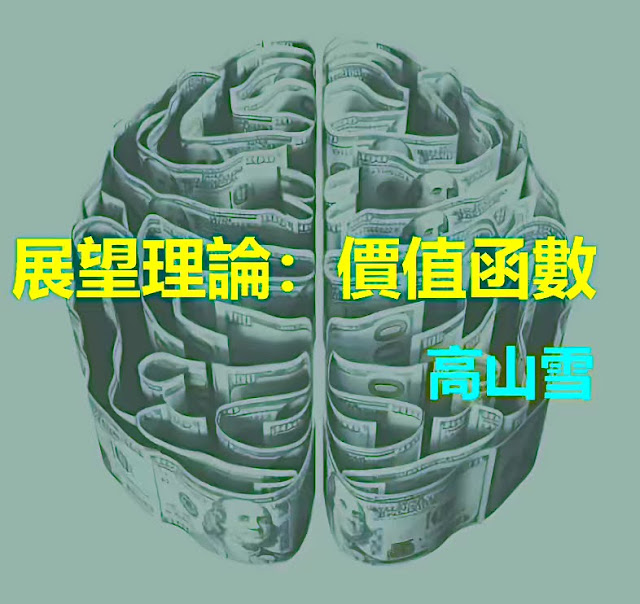Never Fully Trust Experts or Gurus
Continuing from the previous article <Subjective Probability Estimation>, another thing we should deal with caution is other peoples' subjective probability.
Clarifying Expert's Estimation
As mentioned, we should understand what people mean when they speak "chance" - a descriptive probability.
If an expert or a consultant says his estimation for a possibility of an event happening is "more likely", you have to be very cautious about this word, and should seek further clarification by what does he mean by that. Because you will never know if there is any difference between your understanding about "more likely" and his. If you don't clarify, you'll never know.
You can guide him through the following example conversation. You should start from the average and guide him through by questions:
- You: Would you say it is 50%?
- Expert: No, more than that. I said it is more likely.
- You: 70%?
- Expert: I would say it is a bit more than 70%.
- You: So, would it be 90%?
- Expert: No, 90% seems a bit too high. In this case, I think it'd be 80%,
So you got his answer in terms of probability (which is 80%), instead of a vague description of "more likely".
Some other things we need to note, that are:
- Grounds of his estimation*. How does the expert come up with his estimation? Using what data, e.g. place, race, population, number, source, time period of the historical data, forecasting time horizon? Is there any assumption made? Any confounding variables exist? ... etc
- Probability in terms of what? It can be probability of occurrence at all time, probability of an event occurred in a specified time period, probability of people involved guessed, probability of an event occurred by geographical distribution. We have to clarify what does the probability means!
- Always doubt. Even you got his subjective probability here, it doesn't mean that it must be correct. Leave a large room for his error.
Never Fully Trust Experts or Gurus
My advice is that never blindly trust any so-called "experts", "guru" or alike in any field. We have to learn to work our own data, analyse and process it, and come up with our own decision before consulting others so as to avoid framing effect.
This is a way to protect ourselves, or be able to objectively convince ourselves to do / not to do something.
Never ever blindly trust anybody including the experts, especially:
- those who have interests in the decision you are about to make,
- those who don't have any responsibilities (such as youtubers, or guru on tweeter, Instagram, facebook, or TV) if the outcomes turn out will screw up your life, or
- those who confidently give you one number (or quantitative result) without any range of error, assumption, or explanation. The more confident they are, the more cautious you should handle their advice.
Examples:
- Some forecasters aim to boast about their forecasts by exaggerating the figures, numbers, percentages, ranges, etc. Forever warn about the market crash, saying things like a big crash is on its way in 7 weeks. They are betting in any sliding 7-week window for the market falls, if it does, they hit the spot on the dartboard. On contrary some exaggerate the market boom in UK property market, talk about the 18-year property cycle.
- Certain bloggers or youtubers even said that we should not buy any annuity or stop paying the premium for insurance/ savings plans in the middle of it because of the low return. Come on! When it comes to annuity, we should not entirely rely on the return, and opportunity cost, but security. Security or guarantee has a price! We can't place all of our money into stock market for retirement due to market volatility. We have to have some stable fixed amount of cashflow comes in after our retirement to fund our living expenses even when the market crashes. This is where 'security' comes from, which has a price. As for insurance plan, if you regard the premium paid as a sunk cost and simply ignore it, and calculate the future investment return, this is conceptually wrong! Those insurance/ savings plans are for long-term security, a buffer for us! Their rationale seems logical but wrong.
- The so-called "expert" (I am talking about the experts) who forecasted about the development of pandemic was frequently wrong.
Thanks but no thanks, all the 'experts' and gurus! Please use our common sense to filter their noises, if not rubbish!
The words of other people you can make reference to, but don't FULLY pass your decision to another person as you will be the one who takes the final responsibility of the outcome of the decision, not them. You have to protect yourself from authority bias. None of them is going to refund your loss! Please make judgement yourself.
Related Topic:
Subjective Probability Estimation
主觀判斷的不確定風險: 準確 vs 精確 (Subjective Judgement under Uncertainty)
==================================
Disclaimer
No part of the post may be reproduced or transmitted in any form or by any means, electronic or mechanical, including photocopying, recording, or by any information storage and retrieval system, without written permission from the blog creator, Snow Hill 高山雪.
This is a personal blog, the blog creator does not warrant, guarantee, or assume responsibility for the accuracy or reliability of any information posted. Under no circumstances shall the blog creator has any liability to you for any loss or damage of any kind incurred as a result of the use of, or reliance on, the information of the site or blog posts. The use of the site and your reliance on any information on the site is solely at your own risk.
© Copyright 2020-2022 高山雪 Snow Hill. All rights reserved.











留言
發佈留言